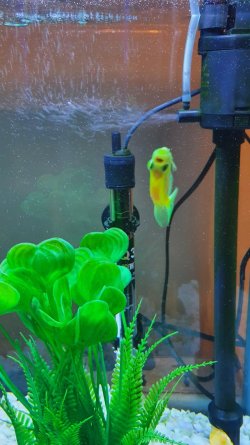I was advised that RO water directly is not the best for fish as it does not have minerals. So instead of getting prepacked RO water, I got some water to test from the municipality. And this water can be easily used in the future for the tank. Results:
Ammonia 0.10 - 0.15 API
Nitrite 0 API
Nitrate 0-5 API
Free chlorine 0.5 strip
Bromine 0.5 strip
Ph 7-7.2
Looks like this water is best suited. Any suggestions please on how to proceed further?
Ammonia 0.10 - 0.15 API
Nitrite 0 API
Nitrate 0-5 API
Free chlorine 0.5 strip
Bromine 0.5 strip
Ph 7-7.2
Looks like this water is best suited. Any suggestions please on how to proceed further?






